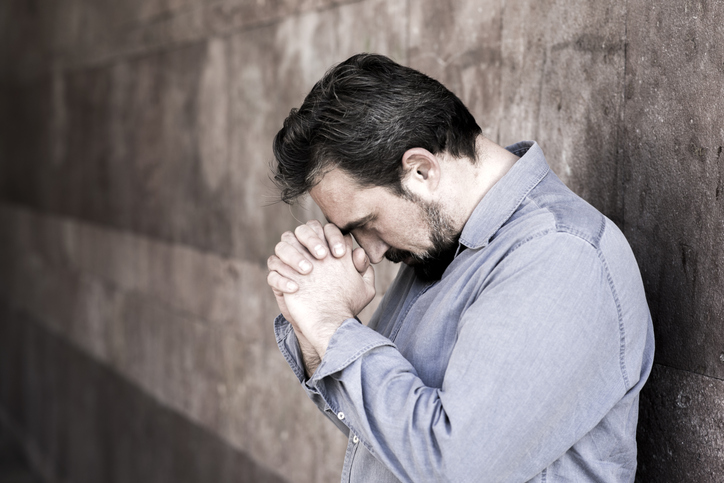Sabbath School Lesson for January 27-February 2, 2024
Overview of Lesson 5, Singing the Lord’s Song in a Strange Land
Memory Text: “How shall we sing the Lord’s song in a strange land?” Psalm 137:4
There are times when we all feel like strangers, that we don’t belong in the circumstances we find ourselves. Either as individuals, suffering illness or facing death, or as God’s people overall, suffering persecution and death from seen and unseen enemies. Is it possible to sing God’s praises when we are pounded down with unimaginable doubts and confusion about God’s ability to save us?
The psalmists faced similar challenges. They weren’t hesitant in their questioning of the covenant God, whose presence was barely felt in the mayhem of their present lives. Most of us can relate to times when hope was dying, when our faith in God’s existence or in His concern for us severely plagued our thoughts.
Studying psalms that portray similar feelings and circumstances can be helpful in overcoming our doubts and fears. They lift us up once again to the place where God’s overarching plan of salvation becomes our place of sanctuary and refuge. It’s okay and natural to question God’s love, but remembering His past blessings can often bring us to our senses and enable us to once again sing praises to our glorious Creator and Redeemer.
What to expect from this study:
- Sunday: The Days of Evil–Our evil ways are often to blame, but God and His reputation suffer with us.
- Monday: At Death’s Door–We may suffer innocently though; but so did Jesus, the Lamb of God.
- Tuesday: Where Is God?–We can question God’s presence, and at the same time, long for Him to be there. (Ps. 22)
- Wednesday: Has His Promise Failed Forevermore?–Looking at the past can help us see God at work again. (Ps. 77)
- Thursday: Lest the Righteous Be Tempted–When we see the wicked prosper, we need to flee to God’s sanctuary and learn more about His plan to save us. (Ps. 73)
Sunday: The Days of Evil
When Israel sinned in the past and found themselves outside their covenant relationship with God, the psalmists prayed even more fervently for God to forgive and restore them. His reputation was on the line, too, when His people were threatened. The psalmists didn’t hesitate to remind God of this (Psalm 74:18). When the days were evil, they pleaded for God’s intervention for themselves, but also for God’s name and righteous character to be restored.
We often dishonor God by our evil ways even today. Many people reject God when they witness the unholy actions of those professing to be Christians. Acknowledging our sin as the psalmists did, and taking steps to be forgiven, will not only improve and strengthen our love for God, but others, including God, will be uplifted as well (Psalm 79:8, 9).
Bible Verses:
- Psalm 74:18-22
How is God’s reputation hurt when His people disobey Him?
- Psalm 79:5-13, 83:16-18, and 106:47
How does confessing that we are evil help us in days of evil? Why is it important?
Monday: At Death’s Door
When we are extremely sick (Psalm 41:1-4) or even near death (Psalm 88:3-12), many questions fill our mind about the presence and love of God. It easily feels like God has abandoned us and that He may not even care about our suffering. The psalmists expressed these same emotions of pain and doubts about God. We should deeply study how they were able to make sense of such trials, which we all experience at some time in our lives.
Hardest to understand is how even the innocent are permitted by God to suffer unimaginable pain. Hope slowly returns to us, however, when we remember that even God’s perfect, sinless Son experienced one of the worst kinds of deaths man could suffer. And yet, the empty grave of our Savior gives us hope that we, too, have a resurrection in our future.
Included in God’s glorious plan is the promise of an eternal existence in a world without death, pain, or separation. Even during trials almost too hard to bear, this hope of a better future is something that can sustain us, even when we are at death’s door.
Bible Verses:
- Psalm 41:1-4
Share a time when you or someone you know went through a difficult time of illness. How did it make you or them feel about God?
- Psalm 88:3-12, 102:3-5, 11, and 103:15-18
Share a time when you or someone you know was close to death. What helps us deal with death and grief?
Tuesday: Where Is God? (Ps. 22)
We aren’t the only ones who have wondered where God is–who feels forsaken by Him. Jesus Himself felt forsaken by His Father as He approached death on the cross. Along with the psalmist in Psalm 22:1, His last words at Calvary were “My God, My God, why have You forsaken Me?” (Matthew 27:46).
John records that Jesus also said on the cross, “I thirst” (John 19:28). Perhaps you have felt the overwhelming need to quench your physical thirst. It’s well known that we die sooner from a lack of water, than from food. Many times throughout Psalms we find the people thirsting for God (Psalm 42:1, 63:1, and 69:3).
Even as God seemed at times to be silent, the psalmists were quite outspoken about their need for Him. They continued to seek Him, examining their own hearts and pleading for God’s forgiveness and intervention on their behalf (Jeremiah 29:12, 13).
Bible Verses:
- Psalm 22
How might Jesus have been spiritually encouraged by the words of this psalm?
- Psalm 42:1, 63:1, and 69:3
What times in your life have you “thirsted” for God, wondering perhaps if He was even listening?
Wednesday: Has His Promise Failed Forevermore? (Ps. 77)
Psalm 77 describes a time of immense mental anguish. The psalmist was apparently troubled, confused, and overwhelmed by events in his life. So many questions about God came to his mind, but he was so distraught, he couldn’t open his mouth to voice them (Psalm 77:3, 4).
As he meditated and sought answers to his questions, the psalmist began to remember how God had led the Israelites in the past through Moses and Aaron. He contemplated the power of God by what he witnessed in the natural world. Its beautiful glory and power was impressive and reassuring to his weary spirit.
Although His presence was hidden from him at the time, God’s footprints remained to remind the psalmist that God was still there and longed to relieve his troubled mind.
Bible Verses:
- Psalm 77:1-6
What kind of circumstances might cause us to remember and even reach out to God, but not be able to find comfort and relief from our prayers?
- Psalm 77:7-9
Even though the psalmist doesn’t doubt God’s existence, how would it still be possible to question His concern for him?
What other questions have you had about God, when you were upset about what you were experiencing?
- Psalm 77:10-15, 73:17, 150:1, and Ephesians 3:17
What kind of answers might be found in the sanctuary, and where is God’s sanctuary?
Thursday: Lest the Righteous Be Tempted (Ps. 73)
In 1981, Harold Kushner, a prominent rabbi, wrote a bestselling book called “Why Bad Things Happen to Good People”. The same question that stymied those who wrote the Psalms continues to plague mankind today. If God is all-powerful, then why doesn’t He do something to prevent wicked people from prospering? Why are they allowed to flourish and cause God’s people to suffer from their cruelty (Psalm 94:3)?
Psalm 94:4-7 articulates such frustration over the disparities of the innocent and those who are evil. It’s so easy to be envious of the wealth of evildoers. Where is God’s justice, we are tempted to ask?
But Psalm 73 provides comfort and answers to our struggles with these troublesome thoughts. In Psalm 73:17, the center of the psalm, we are directed to God’s sanctuary for the understanding we are seeking. The sanctuary, which is wherever God dwells, provides us with forgiveness for sin, deliverance and safety from our enemies, but also with knowledge about why salvation is necessary.
God and Satan are in a difficult power struggle right now. This is causing a great controversy that affects the whole universe. But, thankfully, God reveals to us the reason we can still have hope, despite our present trials. God wins in the end. Satan loses. It’s as simple as that. See Psalm 37:1, 2.
Bible Verses:
- Psalm 73:1-20, 27 and 1 Peter 1:17
Why can we have confidence in God’s love and justice, and what should it cause us to do?
- Psalm 73:17, 28
How can we draw near to God? Where can He be found?
Friday: Final Thoughts
We draw much hope from many verses in the Psalms, such as Psalm 56:3, 4, 118:6, and 27:1. They remind us that we shouldn’t worry about what man can do to us. We have nothing to fear from man, when we trust God.
A well-known Christian author, Ellen White, encouraged us to keep trusting God, when she wrote: “Summon all your powers to look up, not down at your difficulties; then you will never faint by the way.” And remember, too, that: “Faith grows strong by coming in contact with doubts and opposing influences.”
When God’s face seems hidden, the Psalms help us renew our faith by recalling His past efforts to save us, examining our hearts and humbly confessing our faults, and most of all by continuing our search for His loving grace and mercy.
We are motivated to sing His praises, when everything has been done to remain connected to our wonderful Creator God.
Some hymns that we might feel like singing this week would be:
- “I’m a Pilgrim”, #444
- “It Is Well With My Soul”, #530
- “Day by Day”, #532
Next Week: I Will Arise
To read the Sabbath School Lesson Quarterly and see more resources for its study, go to









